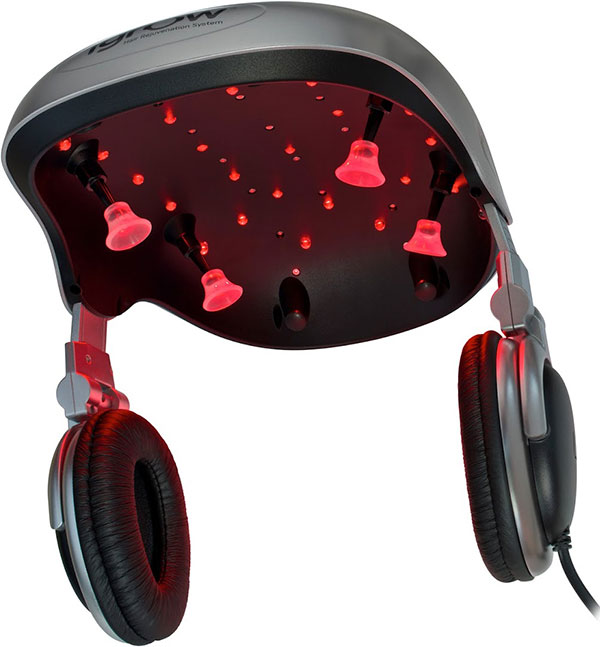There already are plenty of treatments for hair loss, some more efficient than others, but that didn’t stop Apira Science to develop a hair growing laser helmet that has just been approved by the US Food and Drug Administration recently.
Let’s be honest for a moment, anything that includes lasers is bound to be efficient, regardless of the purpose it was built for, and even more so when it’s a medical matter that we’re talking about. Even saying the word ‘laser’ out loud seems to have some therapeutic effect on people nowadays. That is not to say that the Apira Science’s iGrow hair growing laser helmet doesn’t work as advertised. After all, the FDA doesn’t give clearance to just anyone. Or does it?

The iGrow hair growth system, something that sounds as if it was made by Apple, works on a very simple principle. The helmet employs red lasers and LEDs to illuminate the scalp. Putting the helmet on for 25 minutes a day, three or four times a week, should be sufficient. However, the results won’t appear sooner than four to six months into the treatment, and then people shouldn’t expect an increase in the hair count of more than 35 percent.
LLLT (Low-Level Laser Therapy), the technology on which this helmet is based, relies on the principle that light at the wavelength of 655 nanometers can re-energize hair follicles and can actually promote hair rejuvenation. Given Apira Science’s past history, the developers of this helmet might hide behind sciency-looking data and capitalize on hope.
In case you were wondering why the pieces covering the ears look like headphones, it’s because that’s exactly what they are. The manufacturers of the hair growing laser helmet thought that you might get bored and start pulling your hair at the end of the 25 minutes-session, so it included the means for listening to music or audiobooks while your hair grows. Some might get the wrong idea that it’s actually the music and not the LEDs and lasers that promote hair growth.
iGrow will cost $696 and will be offered as an over-the-counter product, thanks to the FDA. That’s a pretty steep price, and assuming that you’ve set your expectations too high, you’re left with a very expensive pair of weird-looking headphones. Bose & Co. definitely have nothing to fear, though.
Be social! Follow Walyou on Facebook and Twitter, and read more related stories about Reebok Checklight, a helmet that warns sportsmen about head traumas, and life-saving Guardian AR motorcycle helmet.










